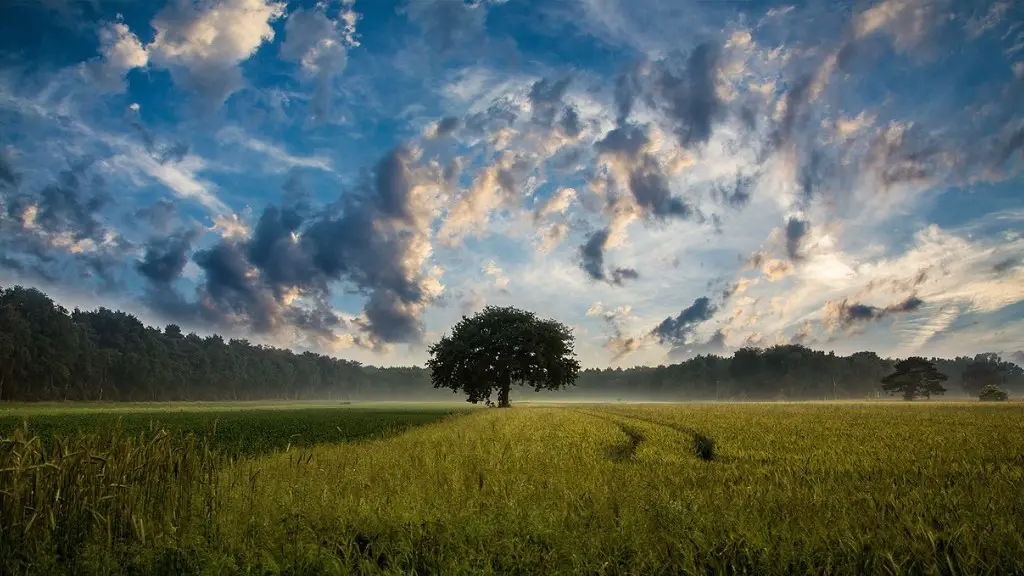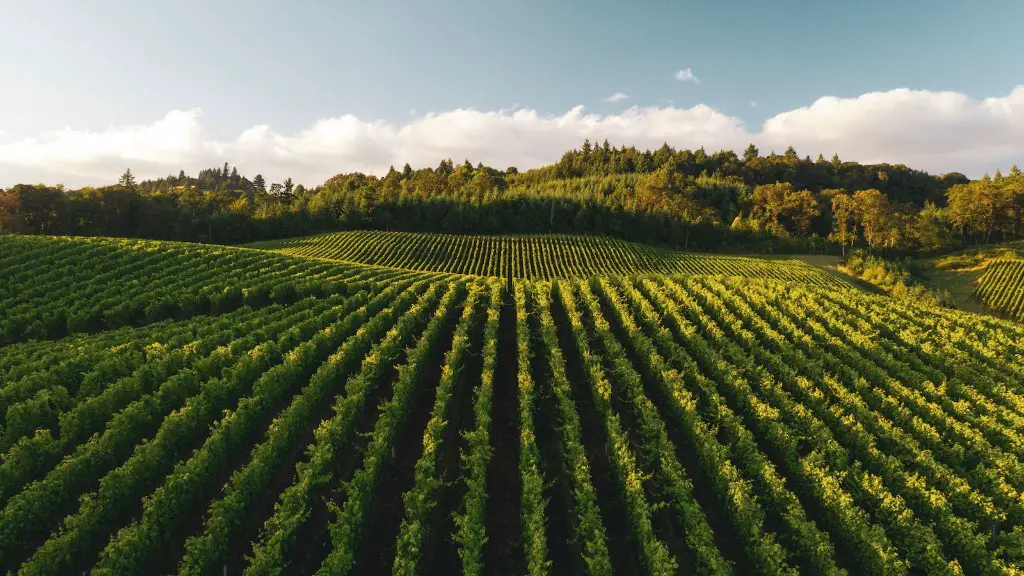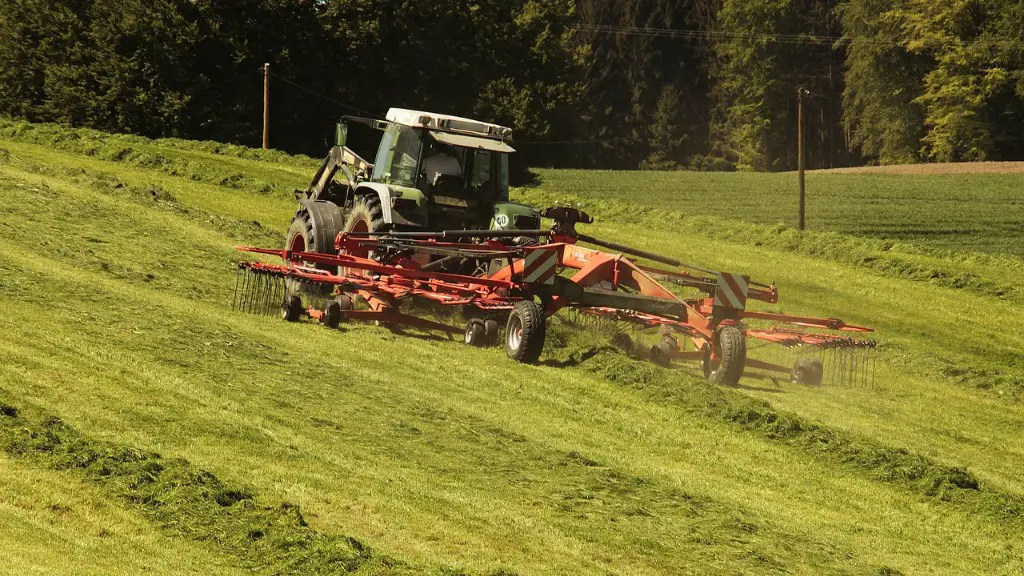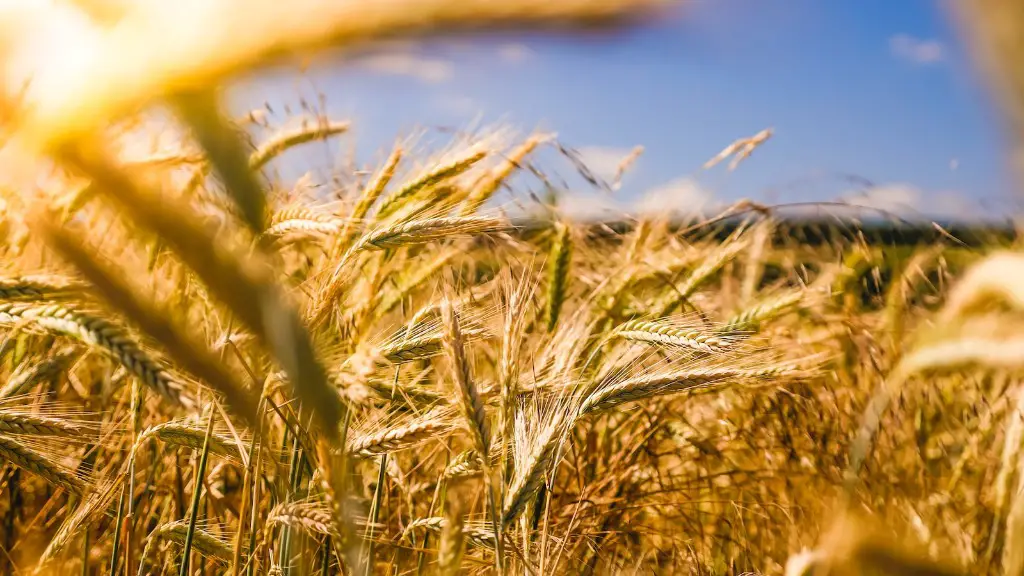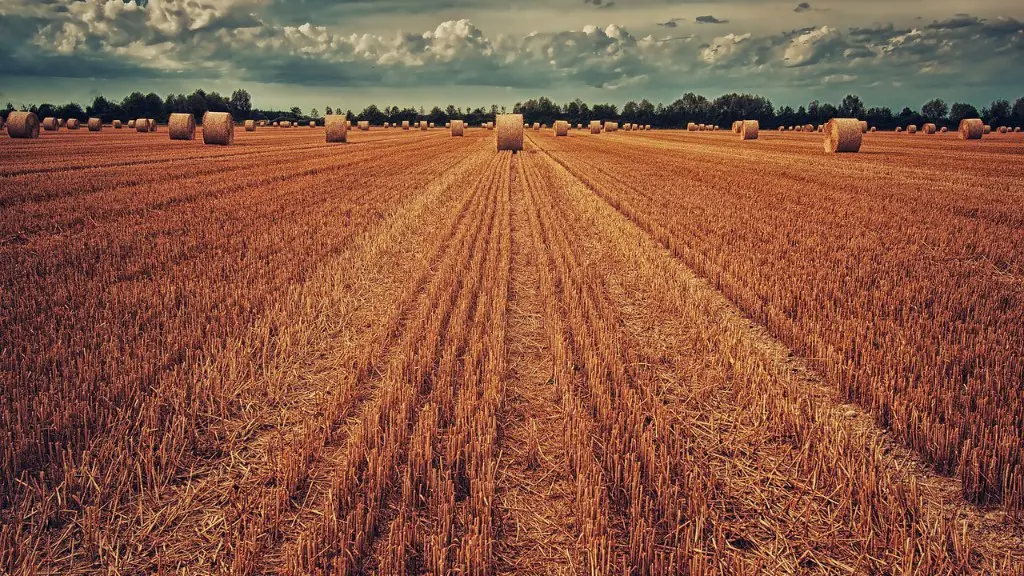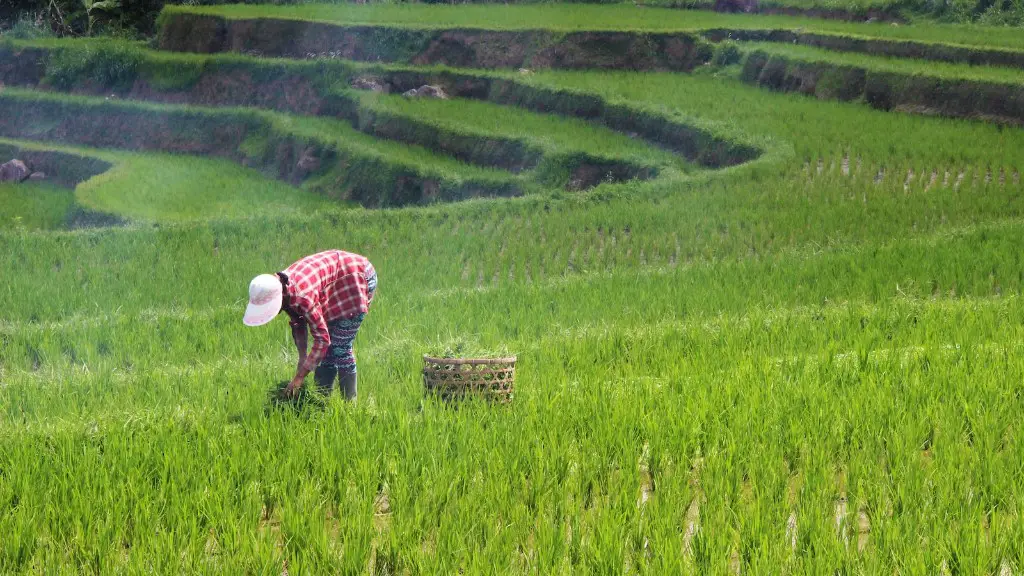Agriculture is the main source of food for humans and animals, and it also plays an important role in the economy. However, agriculture can also have negative impacts on the environment. For example, intensive farming practices can lead to soil erosion, water pollution, and deforestation. Agriculture can also contribute to climate change by emitting greenhouse gases.
The effects of agriculture on the environment are both numerous and varied. Agriculture can have a negative impact on the environment by contributing to pollution, land degradation, and deforestation. On the other hand, agriculture also provides many benefits to the environment, such as by sequestering carbon and providing habitats for wildlife.
What are 3 effects of agriculture on the environment?
Large-scale, conventional farming is not sustainable in the long term. It contributes to climate change, pollutes air and water, and depletes soil fertility. We need to find ways to produce food that are more environmentally friendly and that don’t rely on fossil fuels, pesticides, antibiotics, and synthetic fertilizers.
The agricultural industry is a major contributor to many environmental problems that are causing the planet to degrade. These problems include climate change, deforestation, biodiversity loss, dead zones, genetic engineering, irrigation problems, pollutants, soil degradation, and waste. The agricultural industry needs to make some major changes in order to protect the environment and reduce the amount of damage that it causes.
What are 5 environmental factors that affect the agriculture industry
There are many environmental factors that can influence the amount of arable land available for crops. The main factors are terrain, climate, soil properties, and soil water.
Crops need space to grow, and they need sufficient light, warmth, and moisture. Soils must be of sufficient depth, with sufficient drainage, texture, and chemical and fertility properties.
Climate can be a major factor in determining the amount of arable land. If the climate is too cold, crops may not be able to grow. If the climate is too hot, the soil may dry out and become unproductive.
Soil water is also a critical factor. If the soil is too dry, crops will not be able to grow. If the soil is too wet, it may become waterlogged and crops will not be able to access the oxygen they need to grow.
Setting the table to address the triple challenge means creating a plan that addresses all three challenges at once. This can be done by focusing on sustainable agriculture practices that help to improve yields, provide farmers with a livable income, and protect the environment. Such a plan would need to be tailored to the specific conditions and resources of each region, but some common elements could include investing in small-scale farmers, promoting agroforestry and other climate-friendly practices, and supporting women farmers. With the right policies and investments in place, we can make progress on all three fronts and create a more sustainable future for us all.
Are there any negative effects of agriculture?
The government has implemented financial assistance programs that enable farmers to reduce their GHG emissions from agriculture. These programs help farmers to adopt practices that improve soil health and increase carbon sequestration, as well as to reduce methane emissions from enteric fermentation.
Industrial agriculture has a number of disadvantages that include:
-Deforestation: Intensive farming practices require large amounts of land, leading to deforestation.
-Soil Degradation: Intensive farming practices can degrade the quality of the soil, making it less productive.
-Pest and Weed Resistance: The use of chemicals to control pests and weeds can lead to the development of resistance to these chemicals.
-Soil Degradation: Intensive farming practices can degrade the quality of the soil, making it less productive.
-Impact on Natural Habitats: Intensive farming practices can have a negative impact on natural habitats.
-Water Pollution: Intensive farming practices can lead to water pollution.
-Climate Change: Intensive farming practices can contribute to climate change.
What are the 5 biggest environmental problems caused by food and agriculture?
Food production takes a toll on the environment in a number of ways. From the water used to grow crops to the emissions released during farming and processing, the impact of food on the planet is significant.
Water use is perhaps the most obvious environmental issue associated with food production. It takes a lot of water to grow crops, and even more to raise livestock. This water use can lead to water pollution, as chemicals used in farming can contaminate local water supplies.
Greenhouse gas emissions are another large environmental issue associated with food production. Farming and food processing are both energy-intensive processes that release a lot of carbon dioxide and other greenhouse gases into the atmosphere. These emissions contribute to climate change, which is a huge global problem.
Environmental contaminants and pollutants are another concern when it comes to food production. Pesticides, herbicides, and other chemicals used in farming can pollute the air, water, and soil. They can also end up in the food we eat, which can be harmful to our health.
Finally, food production can also lead to the depletion of natural resources. This is particularly a problem with meat production, as the demand for livestock feed can lead to the clearing of forests and other habitats.
Fortunately, there
If you’re looking for a developed country with a high standard of living, look no further than Canada! In recent years, Canada has been welcoming more and more immigrants from all over the world.
There are many reasons why you should relocate to Canada today. First of all, Canada is a highly developed country with a sophisticated economy. This means that there are plenty of opportunities for finding well-paying jobs. Canada also has a reputation for being a safe and stable country, which is perfect for raising a family.
In addition, Canada is a very diverse country, with people from all cultures and backgrounds living together in harmony. You’ll be able to find a community of people who share your values and traditions.
Finally, Canada is a beautiful country, with a wide variety of landscapes to explore. From the Rocky Mountains to the stunning coastline, there’s something for everyone to enjoy in Canada.
So what are you waiting for? Start planning your move to Canada today!
How do agricultural waste harm the environment
Agricultural solid wastes need to be disposed of properly in order to prevent pollution. They should not be dumped or burnt in public places, as this can lead to air pollution, soil contamination, and the release of harmful gases, smoke, and dust. The residue from these Solid wastes can also pollute water sources, so it is important to dispose of them properly to protect the environment.
Agriculture can have a positive or negative effect on the environment. It can help reduce soil erosion, water pollution and contribute to climate change. It can also improve air quality, provide habitat for wildlife and provide food.
What is the biggest problem in agriculture?
There are a number of reasons for the loss of agricultural land. These include urbanization, conversion of land to other uses, and changes in farming practices. The decrease in the varieties of crops and livestock produced is due to the increasing focus on a small number of crops and livestock that are more profitable. This has led to a loss of biodiversity and a decrease in the overall resilience of agriculture.
Farming allowed for the domestication of plants and animals, which led to the development of civilizations. This, in turn, led to the formation of social classes and the stratification of society. The ruling class controlled the food supply and used it to their advantage, while the lower classes were left to fend for themselves. This situation led to many problems, including malnutrition, starvation, and epidemic diseases.
What are at least 3 cons to our agricultural practices
Animal cruelty is an ongoing problem in today’s society. It negatively impacts small business agriculture and creates environmental concerns. It also contributes to health problems and can produce low-quality food.
Soil greenhouse gas emissions, specifically methane and nitrous oxide, have a significant impact on climate change. Methane is produced by ruminant animals and paddy rice cultivation, while nitrous oxide comes from soils, fertilizers, and manure from grazing animals. Both of these gases have much higher global warming potential than carbon dioxide, making them major contributors to climate change. Reducing emissions from these agricultural sources is critical in order to help mitigate the effects of climate change.
What are the 4 causes damage to the environment?
Humans impact the physical environment in many ways: overpopulation, pollution, burning fossil fuels, and deforestation. Changes like these have triggered climate change, soil erosion, poor air quality, and undrinkable water. These changes have had a negative impact on the environment and human health. In order to protect the environment and our health, we need to reduce our impact on the environment.
The result of this is that agriculture is increasingly putting pressure on the land and water resources of the earth, which often leads to land degradation (such as soil erosion and salinization), and eutrophication. Agriculture is also connected with greenhouse gas emissions (Kirchmann and Thorvaldsson 2000).
Final Words
The effects of agriculture on the environment are both direct and indirect. Direct effects of agriculture include things like soil erosion and water contamination from pesticides and herbicides. Indirect effects of agriculture include things like climate change and deforestation.
The effects of agriculture on the environment can be both positive and negative. On the positive side, agriculture can help to conserve resources and promote sustainability. On the negative side, however, agriculture can lead to soil erosion, water pollution, and deforestation.
